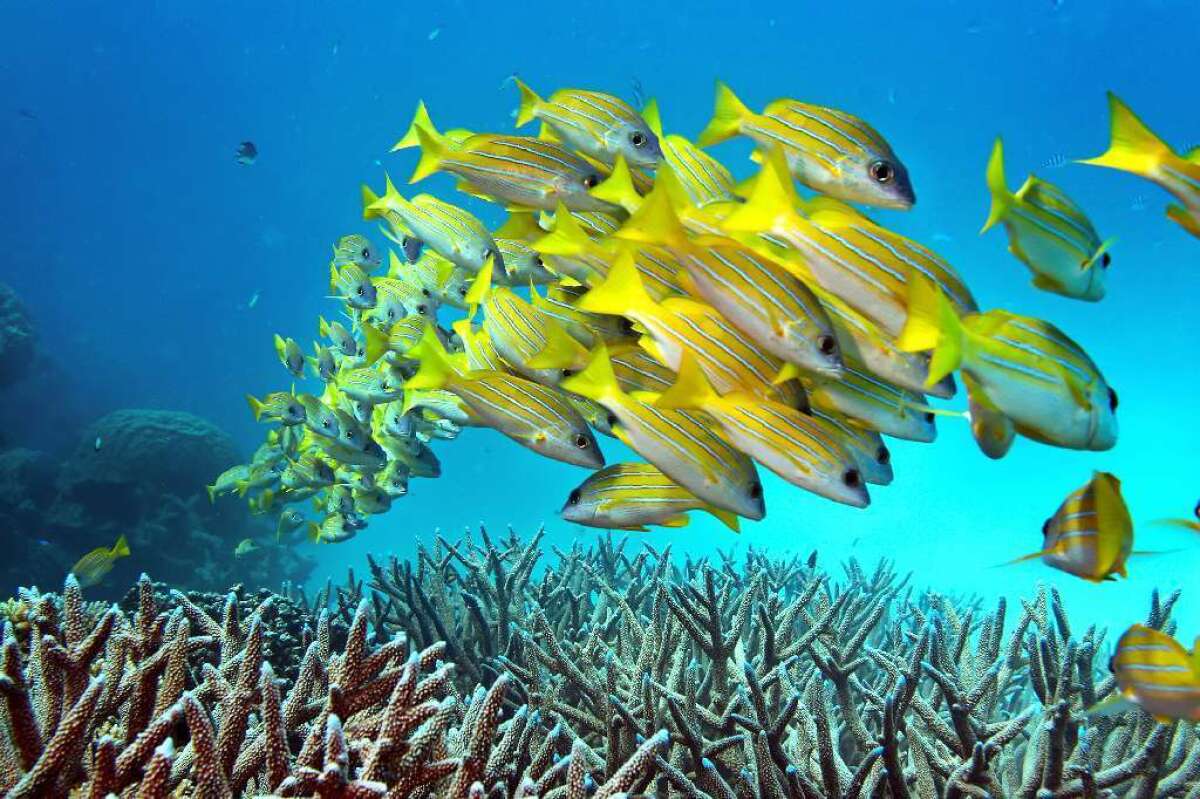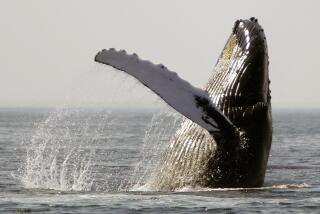Coral reefs may be more adaptive to climate change than once thought

- Share via
Scientists studying the catastrophic phenomena of coral bleaching have concluded that reef systems may be more adaptable to increasingly warmer oceans than previously believed.
The study — published online in the journal Global Change Biology -- is heartening news, coming in the face of dire predictions that had the world’s coral reefs disappearing by the middle of the century.
The work was funded by the National Oceanic and Atmospheric Administration and conducted by researchers at Cal State Monterey Bay and the University of British Columbia. The scientists project that corals might be more resilient than previous studies have suggested and might produce genetic responses to warm waters.
The authors stressed, however, that current losses could be slowed only with significant reductions in carbon dioxide emissions.
Coral systems are sensitive to temperature changes. An increase of only 2-4 degrees above average summer water temperatures can create stress, causing corals to expel algae, a major food source. Prolonged bleaching can kill corals.
Reefs have been hard hit by climate change, according to scientists. A 2000 report found that 20% of the ocean’s reef systems were lost to high water temperatures during the El Niño and La Niña events in 1998 and 1999.
Another paper, in the journal Science, documents an 80% loss of coral cover in the Caribbean, where reefs are among the most biodiverse ecosystems in the world.
@julie_cart







